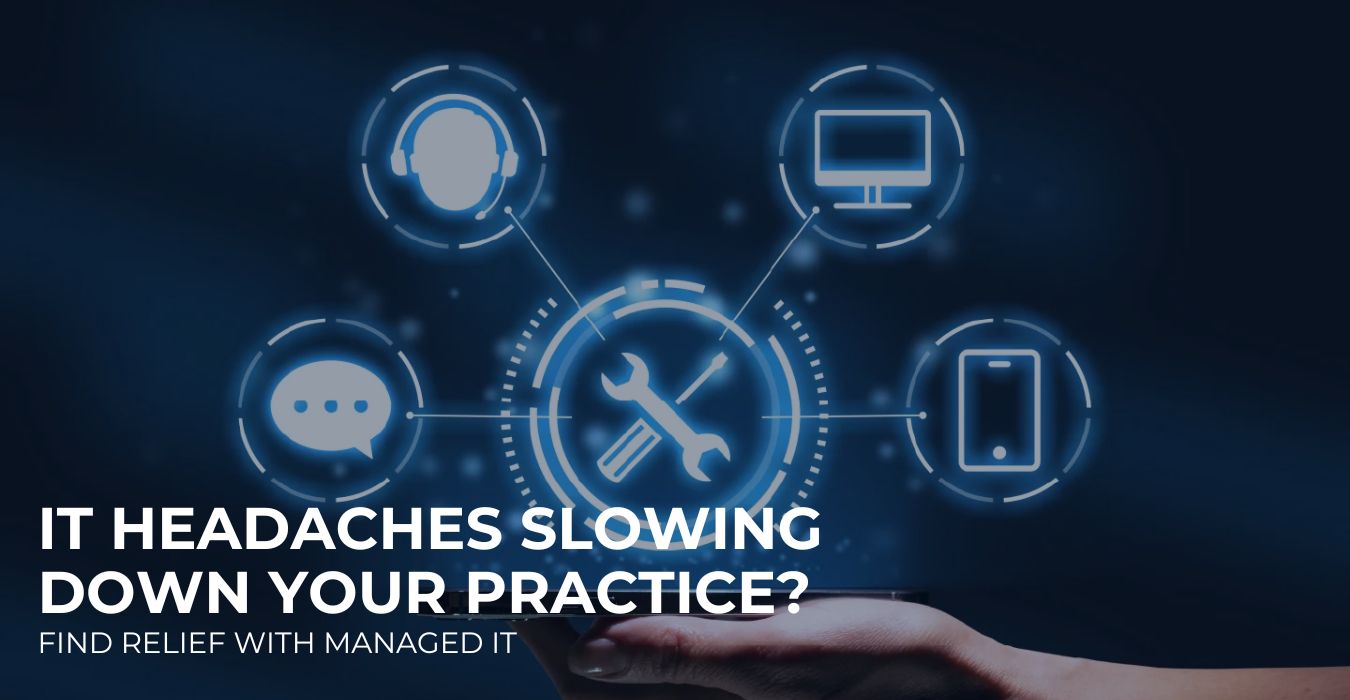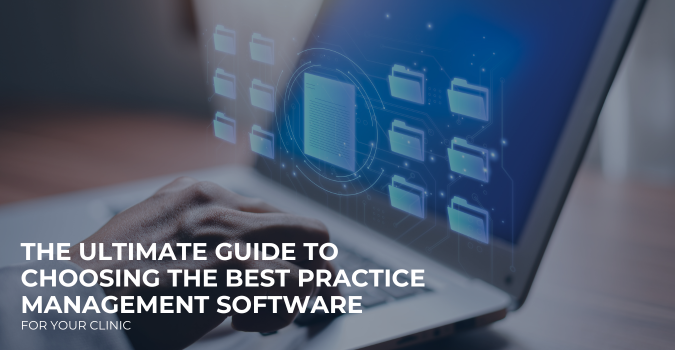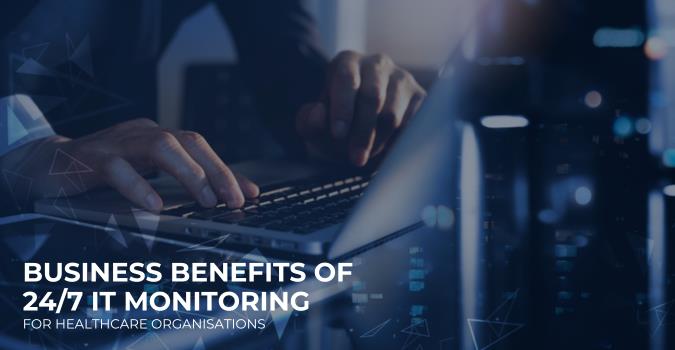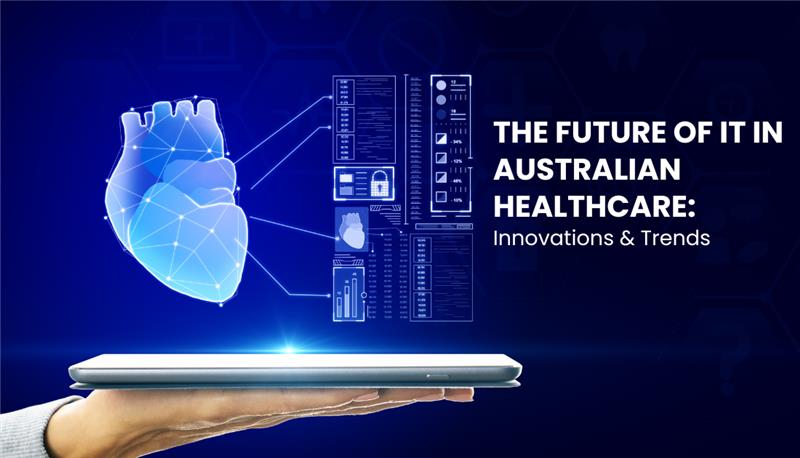Running a modern medical practice requires more than just excellent patient care, it demands efficient…

IT Headaches Slowing Down Your Practice? Find Relief with Managed IT
In today’s fast-paced healthcare environment, technology is essential for delivering quality patient care. However, managing complex IT systems can be overwhelming. That’s where managed IT services play a role. These services provide proactive, expert IT support to ensure technology runs smoothly, securely and efficiently. Here’s why IT services are vital for modern healthcare organisations.
Enhanced Data Security & Compliance
Safeguarding sensitive patient information is essential. Managed IT Services help healthcare organisations maintain robust cybersecurity by providing:
- Routine security audits
- Proactive threat detection and prevention
- Adherence to industry standards
This will ensure healthcare providers can prioritise patient care without concerns about data breaches or regulatory non-compliance.
Proactive IT Monitoring & Downtime Prevention
IT downtime can significantly impact patient care. Managed IT services provide round-the- clock monitoring to identify and resolve issues before they escalate. This includes overseeing server performance, managing software updates and preventing system failures, ensuring uninterrupted operations.
Streamlined Operations with Expert IT Support
Healthcare IT demands, such as managing EHRs, telehealth platforms and patient communication systems, require specialized expertise. IT Services offer skilled professionals to handle IT planning, system integration and management, allowing healthcare providers to focus on delivering quality patient care.
Improved Patient Experience
Reliable technology plays a crucial role in improving patient satisfaction by providing efficient, user-friendly services. IT services ensure:
- Quick and convenient online appointment scheduling, allowing patients to easily book, reschedule or cancel appointments at their convenience.
- Seamless telehealth experiences, ensuring clear communication, minimal technical disruptions and secure connections for virtual consultations.
- Secure access to medical records, empowering patients to review their health information anytime, anywhere, with confidence that their data is protected.
By streamlining these processes, IT services help healthcare providers deliver a responsive and patient-centred experience.
Cost Savings & Scalability
Managing IT internally can be costly, particularly when it comes to maintaining a skilled team and investing in constantly evolving technology. Outsourcing IT services to experts not only helps healthcare organisations minimize unexpected expenses but also allows for:
- Scalable technology solutions that can be adapted to the organisation’s growth and changing needs.
- Access to specialised expertise without the overhead of hiring and training full-time staff.
- Proactive management that prevents costly IT issues before they arise, ensuring smooth operations and avoiding disruptions.
By partnering with managed IT providers, healthcare organisations can focus on patient care while ensuring that their IT infrastructure remains efficient, secure and cost-effective.
Conclusion
Managed IT Services go beyond basic IT support, they play a key role in strengthening security, streamlining operations and ensuring uninterrupted patient care. By safeguarding sensitive data, enabling telehealth and improving operational efficiency, IT services are vital to the success of modern healthcare organisations.




